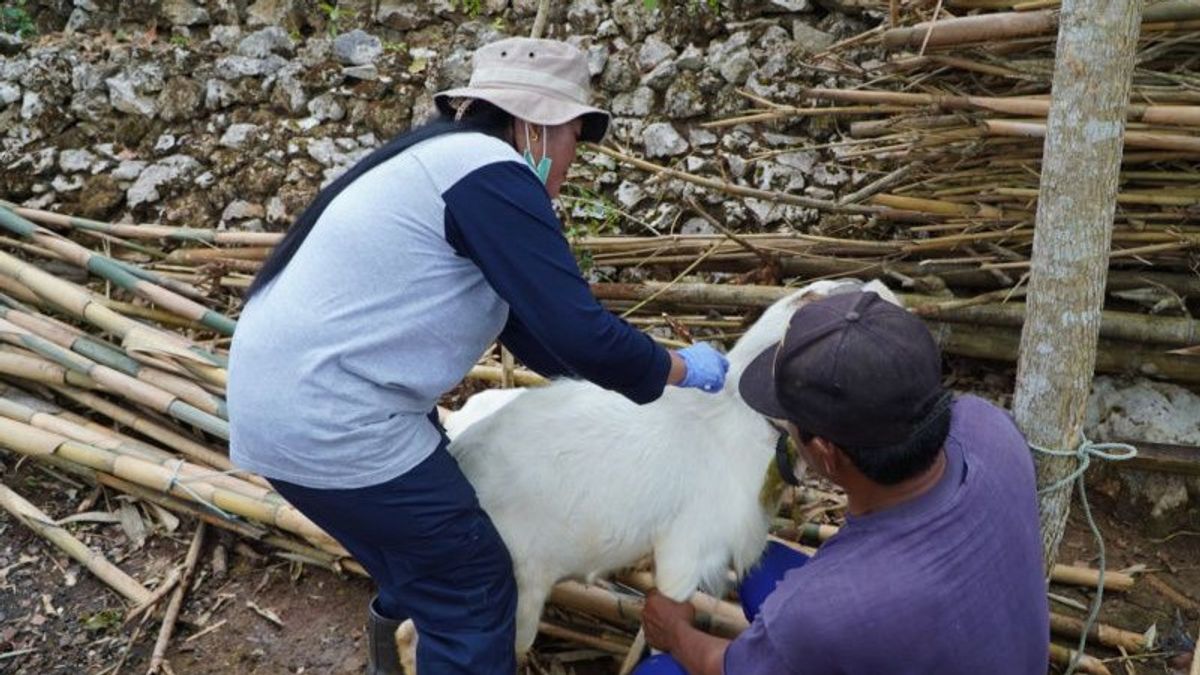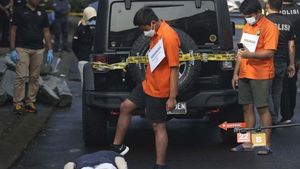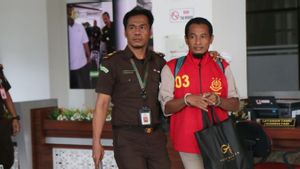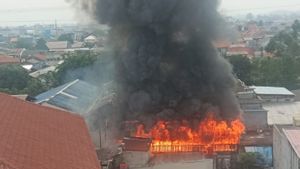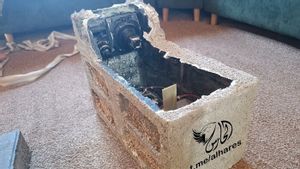A total of two residents of Padukuhan Semuluh Lor, Ngeposari Village, Semanu District, Gunungkidul Regency, were reported to have suffered skin wounds similar to the symptoms of antracese. The Health Service (Dinkes) intervened to take samples of other residents' blood.
"The taking of these blood samples is to find out whether there are people affected by the anti-extraction," said Head of the Disease Prevention and Control Division of the Gunungkidul Health Office, Sidig Hery Sukoco in Gunungkidul, Yogyakarta Special Region (DIY), Thursday, July 20, as reported by Antara.
He conveyed that the findings of two residents with similar symptoms of BETraks were suspected to be related to a brandu carried out by residents of Padukuhan Semuluh Lor on one resident's goat.
Brandu is the tradition of residents to buy sick livestock with contributions together and then slaughter them and distribute the meat for consumption.
The Gunungkidul Health Office examined blood samples of residents who suffered similar injuries as well as symptoms of anti-extraction as well as 20 other people who also consumed granulated goat meat.
"Until now, we are still waiting for the results of laboratory tests from blood samples. Hopefully all of the results are negative," said Sidiq.
The head of the Gunungkidul Health Office, Dewi Irawaty, said that the two people suspected of having an anti-branched the wound gradually recovered.
Dewi appealed to residents to adopt a clean and healthy lifestyle and ensure that the food consumed is safe and healthy to avoid disease transmission.
"Make sure the food consumed is completely healthy and not contaminated with disease," he said.
VOIR éGALEMENT:
Meanwhile, Head of the Animal Health Division of the Gunungkidul Retno Widiastuti Animal Husbandry and Animal Health Service, Retno Widiastuti, said the service had dispatched officers to trace the transmission of antracese in Semuluh Lor, including checking soil samples around residents' residences suspected of having been attacked by an attack.
Based on the officer's search, according to him, two residents who were suspected of being attacked by anTRACKs previously slaughtered goats and ate the meat.
"There is no suspicion for the case at Semuluh Lor yet and now it is just an allegation. For certainty, we are still waiting for the test results. Until now there have been no reports of dead livestock," he said.
Antraks is classified as zoonosis, an animal disease that can be transmitted to humans. Diseases caused by bacterial infections of Bacillus anthracis generally attack herbivores such as cows, goats, and sheep.
Humans can catch antrax if they make direct contact with open wounds on infected livestock, breathe air that contains antractic spora, or eat animal meat that is attacked by antrax.
The English, Chinese, Japanese, Arabic, and French versions are automatically generated by the AI. So there may still be inaccuracies in translating, please always see Indonesian as our main language. (system supported by DigitalSiber.id)
